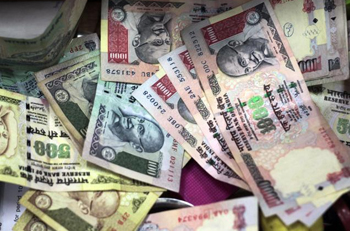 New Delhi, Aug 24: Tax investigators pursuing instances of blackmoney stashed abroad by Indians have finally been able to circumvent the Swiss secrecy code by asking over 100 such account holders to submit on their own details of personal balances in these banks, brought under the tax net recently, for lesser penal action for evasion.
New Delhi, Aug 24: Tax investigators pursuing instances of blackmoney stashed abroad by Indians have finally been able to circumvent the Swiss secrecy code by asking over 100 such account holders to submit on their own details of personal balances in these banks, brought under the tax net recently, for lesser penal action for evasion.
The tax effect in these cases could be about Rs 50-80 crore, according to sources. Faced by non-cooperation from Switzerland owing to the alpine nation's "domestic legal barriers" and "treaty limitations", the Finance Ministry's probe wing under the Central Board of Direct Taxes (CBDT) confronted the people who were named in the secret list of at least two Swiss banks that was provided to them "through both official and unofficial channels" during the last financial year, the sources said here.
The CBDT later asked Income Tax department sleuths to pursue these suspect account holders with the bargain that they would be charged under tax evasion laws and not under the 'wilful tax evaders' category, thereby saving them from harsher penal action, if they approach their banks for details of their personal balances and submit them to Indian agencies.
Over 100 such account holders, according to an official note accessed by PTI, spread in cities like Delhi, Mumbai, Hyderabad, Chennai, Chandigarh and Banglaore among others agreed to the new mechanism which helped India crack some of the tough cases of black money and illicit funds stashed abroad.
"The tax effect in these cases could be about Rs 50-80 crore and this instance is one of the few where secret bank data of an Indian client was obtained despite strict secrecy laws of Swiss authorities in force in this regard," sources privy to the development said on condition of anonymity.
The particular report was also shared by the agencies with the Special Investigation Team (SIT) on black money which has now submitted these cases in a report format to the Supreme Court.
The Income Tax department, the note said, has begun prosecution action in these over 100 cases and they will be charged for evasion of taxes on this hidden income.
The taxman, simultaneously, has also initiated action to know the "source of income" of these entities so that any other instance of tax evasion linked to these accounts could be unearthed.
"While bank authorities in Switzerland did not extend help when the names of these account holders were sent to them under existing protocols of tax information exchange treaties, information was readily available when the account holder was himself or herself motivated to approach the bank to obtain his transactions history and balances," the sources said.
The Swiss government has been refusing to share details about the Indians named in the so called 'HSBC list', which was stolen by a bank employee and later found its way to tax authorities in various countries, including India.
There are similar instances with other banks too and successive Finance Ministers of the country have written to the Swiss government on concerns over this development.
Despite repeated requests from India, Switzerland has said its local laws prohibit administrative assistance in matters where information has been sourced illegally, including through stolen lists.
India is one of the 36 countries with which Switzerland has signed treaties to provide administrative assistance in tax matters in accordance with international protocols as mandated by the Paris-based global economic body, the Organisation for Economic Cooperation and Development (OECD).






Comments
Add new comment